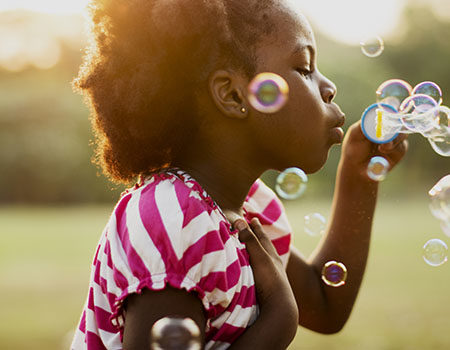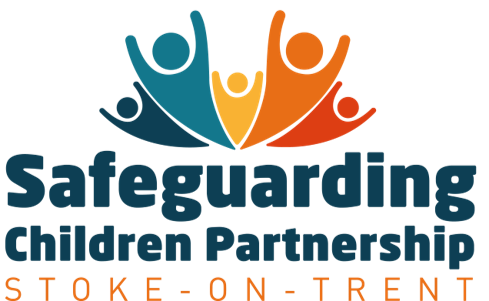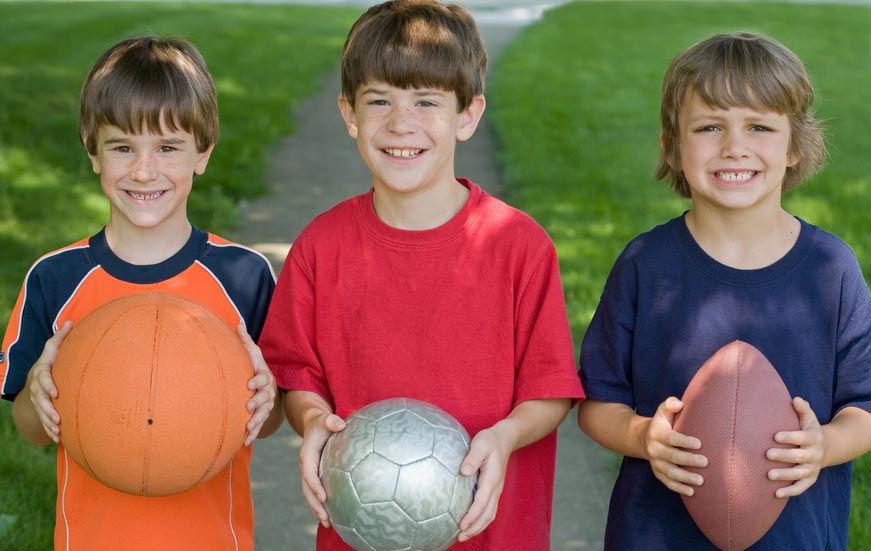Children and Young People
What to do if you are worried
It may sound simple, but if you are worried about anything the best thing you can do is talk to someone you trust. This could be a:
- Friend
- Parent/carer
- Teacher
- Youth worker
- Social worker
They may not always know exactly what to do, but if they are an adult they can find out and help you. Just talking to someone can help you realise whether your worry is little and may just sort its self out in time, or whether it is a big worry, which means you need to do something about it as it is not going to get better until you do. Friends can be useful at helping you decide if your problem is big or small and they can help you tell an adult if you need to.
You can also talk to ChildLine about anything. No problem is too big or too small.
Contact ChildLine by going online and using the 1-2-1 chats or emailing or by calling for free on 0800 1111 (the calls won’t even show up on the phone bill).
You can also contact Children Services in Stoke:
You can call the Front door between office hours on 01782 235100
For out of hours, you can contact 01782 234234
In an emergency call 999.
What is Child Abuse?
Child abuse is when you, or another child or young person, is being harmed or isn’t being looked after properly. Remember, being abused is never your choice and never your fault. Child abuse is never right.
Here are some things to look out for:
- not being fed
- being continuously criticised, ignored or humiliated
- being asked to do something that makes you feel uncomfortable
- being frightened when left alone without an adult to look after you
- being hit, kicked or punched
- being sexually abused (this can include inappropriate sexual behaviour, language or touching)
Where to go for help
Alcohol and Drinking
Even drinking a small amount of alcohol can start to have an effect on your mind and body as everyone reacts differently to alcohol. The effects depend on things such as how tall you are, how much you weigh and what you've had to eat. Is it worth adding legal status on drinking?
Young people are most at risk from alcohol as young bodies and brains are still developing. Drinking can stop you thinking clearly, which means you may do things that you would not normally do. It affects your co-ordination, so that even simple things, like crossing the road, may be riskier. Find out more about the effects of drinking alcohol on The Mix
Drugs and Legal Highs
Drugs affect people in different ways and finding helpful and accurate information out there can be difficult, particularly about 'legal highs'. If you are worried about your drug and/or alcohol use, please get help. You don’t have to manage on your own.
- Make sure that you have enough credit or minutes left on your mobile in case you need to meet up with friends or call your parents.
- Don't mix drugs, especially with alcohol, as the effects can be unpredictable and potentially much more dangerous.
- Plan how you're going to get home safely. Make sure that someone knows where you are, don't get separated from your friends while you are out and keep enough money for a taxi home.
- If you're getting a lift, make sure that the driver hasn't been drinking or using drugs.
- Watch out for your friends. If anyone gets into difficulties, call an adult or, if the situation is dangerous, call 999.
Advice and Support:
- Talk to Frank - The national drugs awareness website for young people, parents and carers.
- The Mix - Lots of useful information, advice and young people’s experiences.
Smoking
More than half of all young people never try smoking but if you have started to smoke there is help available if you want to quit. The younger you start smoking the harder it is to quit and the more damage you could do to your health.
You are four times more likely to stop smoking with professional help.
- Visit NHS Smokefree to get support including an app, Quit Kit, email, text and face-to-face guidance.
- Talk to your GP who can give you advice and support.
- Your general level of fitness will be reduced.
- Smoking gives you smelly hair, clothes and can turn your nails, teeth and hands yellow.
- Smoking reduces your sense of taste and smell.
- Smoking damages your body and can increase your risk of heart disease and other illnesses.
Healthy Relationships
Relationships are really important to everyone, whether they are with family, friends, boyfriend or girlfriend. However, sometimes when you’re in a relationship you don’t necessarily see the signs that may mean you are in a situation that is more unhealthy than healthy.
Here are some signs to look out for to see if you are in a healthy or unhealthy/abusive relationship:
- Respect
- Honesty
- Trust
- Communication
- Equality
- Separate identities
- verbal or emotional abuse, such as, name calling or threatening to spread rumours about you or someone else
- physical abuse
- sexual abuse, for example, a partner trying to pressure you or someone else into having sex
- controlling behaviour, for example, trying to control you by checking your phone
- no respect
- no honesty
- no trust
- no equality
- being isolated by your partner, such as, being stopped from spending time with friends or family
If you think you’re in an unhealthy or abusive relationship then remember it is not normal and is never OK. It can happen to anyone, adults and children, gay, straight and transsexual, women and men. Being in an unhealthy relationship can affect your self-confidence, mental and physical health.
If you recognise these signs in a relationship that you, a parent, friend or loved one is in, visit the GOV.UK website. More information and support is available at Childline.
Sexual Abuse
Visit Childline: https://www.childline.org.uk/info-advice/bullying-abuse-safety/abuse-safety/sexual-abuse/
Child Sexual Exploitation
Visit Childline: https://www.childline.org.uk/info-advice/bullying-abuse-safety/abuse-safety/sexual-abuse/
Child sexual exploitation happens when a young person is encouraged, or forced, to take part in sexual activity in exchange for something, for example, food, accommodation, drugs, alcohol, cigarettes, affection, gifts or money.
Offenders can be adults pretending to be a friend, boyfriend or girlfriend or they could even be a person at school, college or online.
It is important to remember that this can happen to any child or young person, can happen on and offline and that sexual abusers can be both male and female.
- At the beginning, the person makes you feel special by showing you a lot of interest and affection.
- Sometimes they ask groups of young people to come back to their house or go to parties.
- Sometimes you are offered drugs, alcohol and a place to chill out.
- You may be given presents like clothes, a mobile phone, or money to buy alcohol or cigarettes.
- After they have gained your trust and affection things change.
- They will ask for sexual favours for themselves or other people in return for alcohol, drugs, presents, money. All the things that were previously given for free.
- They stop being nice and can become violent or threatening.
If you answer 'yes' to any of the questions below, you may be at risk of sexual exploitation by adults.
- Do you stay out overnight?
- Have you been missing from home?
- Do you skip school?
- Does someone outside your family give you money, clothes, jewellery, a mobile phone or other presents?
- Do you have an older boyfriend or girlfriend?
- Do you take drugs or drink alcohol?
- Are you losing touch with your family and friends?
- Do you hate yourself sometimes?
- Are you secretive about where you go and who you see?
- Do you chat to people online you have never met?
- You are not to blame if you are being abused. The adults who have taken advantage of you are responsible and they are the people who have done something wrong.
- If you can, talk to someone that you trust, such as a parent, carer or a close family member. If you are unable to talk to someone at home, talk to a friend, teacher or someone in your community you trust.
- If you are worried that you, or someone you know, is being abused contact the Police, giving as much information as you can. Your report will be investigated by specially trained staff and officers.
For confidential support and advice
- Text or call the National CSE helpline anonymously on 116 000
- Childline - Contact Childline to talk to a counsellor in confidence.
- Stop It Now - The only UK-wide child protection charity dedicated solely to reducing the risk of children being sexually abused.
- Barnardo's - Child sexual exploitation.
Watch a short video on the story of Jay and his journey involving exploitation and grooming. Created by young people with the NSPCC and CEOP. https://youtu.be/w6vYbZSUL5U
Mental Health
Looking after your wellbeing is very important. There is lots of differing information online about emotional wellbeing, some of which is untrue or misguided, and it can cause worry.
The following are links to websites you can trust for sources of information and support services, many of which we work with regularly. These are not the only things worth looking at online, but they are a great place for you to start looking.
- Autism Explained - Video animation providing a view of autism from a young person’s perspective.
- Beat(formerly Eating Disorders Association) - The UK’s leading eating disorder charity with online support groups and a helpline for anyone under 18.
- Childine- Comforts, advises and protects children 24 hours a day and offers free confidential counselling.
- Family Eating Disorders Service (FEDS)- Support for children, young people and families affected by an eating disorder.
- Mind- An independent mental health charity providing information and support to anyone experiencing mental health issues, plus Autism & Attention Deficit Hyperactivity Disorder (ADHD) training courses for parents and carers.
- On My Mind (Anna Freud Centre)- Self-care strategies if you are feeling low or anxious, and a wellbeing directory.
- Samaritans- A 24-hour confidential listening and support service.
- Winston's Wish Bereavement Support- Counselling for children, young people and families who have experienced bereavement in their direct family.
- Young Minds- A leading UK charity providing resource booklets, self-help guides, service directory and a parent and carers helpline.
Disability
If you have Special Educational Needs or Disabilities (SEND) you can find local services that offer help, support and advice from the Stoke-on-Trent Local Offer
If you want to find more information about health, wellbeing and disability there is lots of information on NHS Choices. It includes some of the most common disabilities (listed below), including information on symptoms, causes, diagnosis and treatment.
Bullying
Bullying is repeated behaviour that is intended to hurt someone physically or emotionally. It is often aimed at certain groups because of their race, religion, gender or sexual orientation
Bullying can take many forms, including:
- Verbal - name calling, teasing or threats.
- Physical - being hit, kicked, or having things stolen.
- Social - being left out, ignored, or having rumours spread about you.
- Psychological - being made to feel scared or made to do things you don’t want to do.
- Cyberbullying - online bullying via email, social networks or instant messenger.
If you are being bullied it is important you talk to someone about it - your mum or dad, a friend or a teacher.
If you want to talk to someone, contact one of the organisations below who can offer advice and support:
Digital Safeguarding
It important to keep yourself safe on line. Visit ‘Think u know‘ for help and guidance on digital safeguarding.
Young Carers
Young carers are children and young people under 18 years old, who look after a member of the family who is sick, disabled, has mental health problems or is misusing drugs or alcohol.
Lots of children and young people want to help out and feel proud that they are lending a hand. At the same time the impact of these caring responsibilities may cause difficulties at home, school, college or elsewhere.
Sometimes it can be difficult to recognise someone as a young carer, but does this sound like your family or a family you know?
If the council thinks a young carer has support needs they must carry out an assessment. You can also ask for the council to carry out an assessment of your needs and the needs of the whole family.
You can get advice from Stoke-on-Trent City Council.
Other useful resources:
- Carers Trust - works to improve support, services and recognition for anyone living with the challenges of caring, unpaid, for a family member or friend who is ill, frail, disabled or has mental health or addiction problems.
- Sibs- for brothers and sisters of disabled children.
- The Children's Society - raise awareness of young carers needs, campaign for policy change, support schools, and work to see that these young people get the future and support they deserve.
- YoungMinds - committed to improving the wellbeing and mental health of children and young people.
Topics





